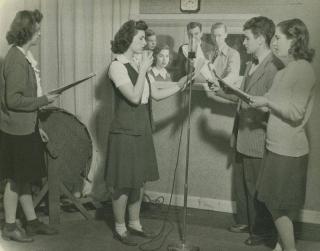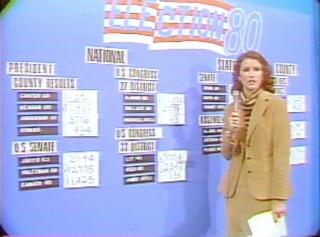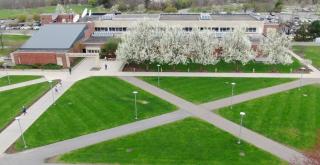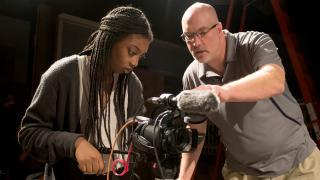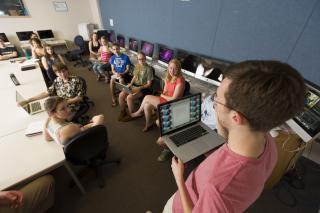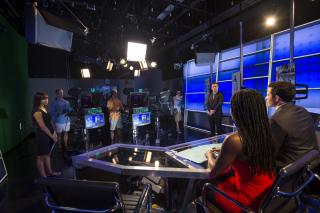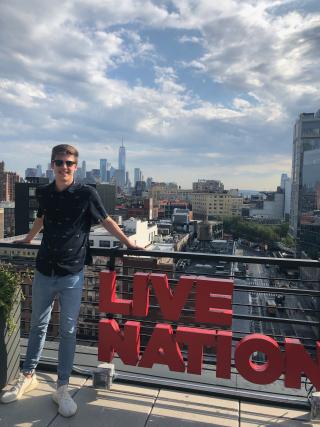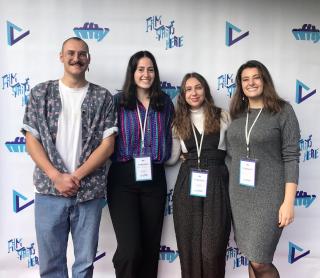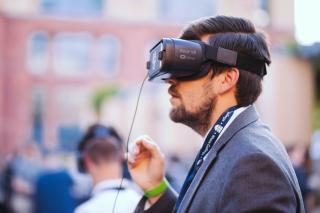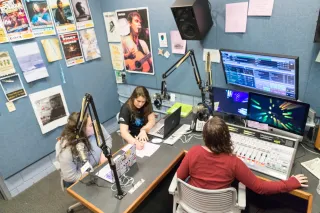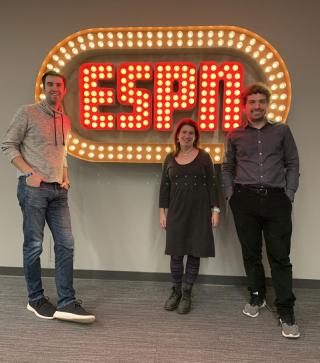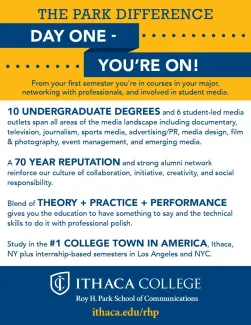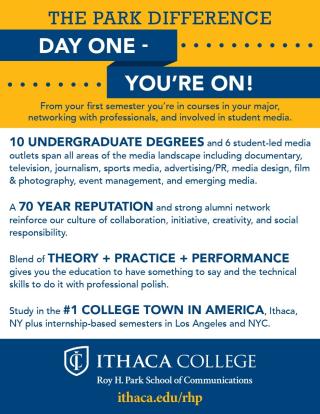Ithaca College began as a music conservatory and in its early years, expanded to offer study in drama, rhetoric, elocution, and physical education. That blend of artistic offerings was the perfect foundation to begin teaching courses in radio in 1931. That same year, the college's newspaper, The Ithacan was founded.
In 1948, an army-surplus Quonset was added to the College's downtown campus and outfitted with a 10-watt transmitter, and WICB-FM was on the air. Expanding into the then-new medium of television, the college built television and radio studios, and in 1958 WICB-TV (now known as ICTV) was launched—the first and longest-running student-led cable television channel on the planet!
When the college moved from downtown Ithaca up to South Hill in the early 1960s, one of the first buildings erected was Dillingham Center—with theater facilities on the first floor and the new radio and television department in the basement. John Keshishoglou was hired to expand the curriculum, and a degree in cinema studies and photography was established in the late 1960s. In 1969, the communications programs were formally organized into a division within the college before becoming the present-day School of Communications in the 1973–74 academic year with Keshishoglou as its first dean. VIC radio started as a campus-only station distributed to the dorms; it now is distributed online through its website and apps. A professional production unit also was launched, enabling faculty and students to be paid to create documentaries and educational films.

